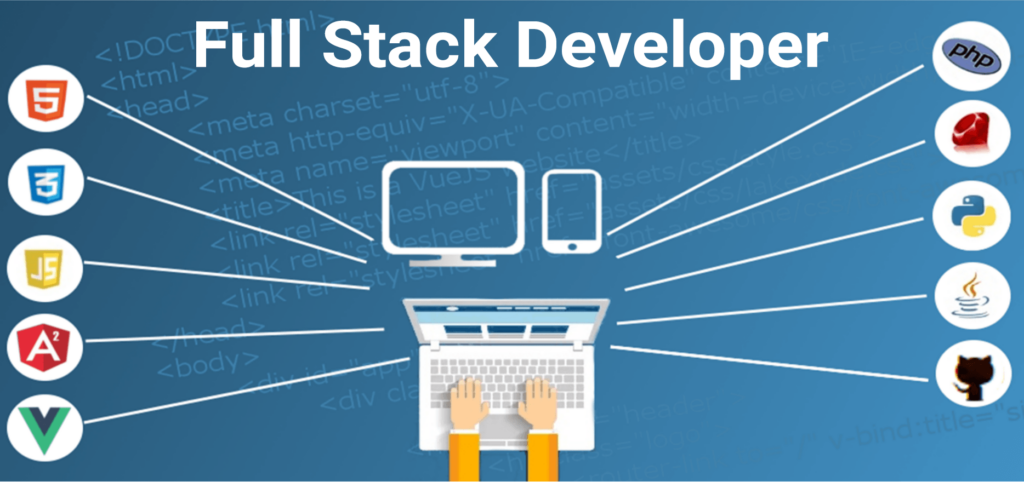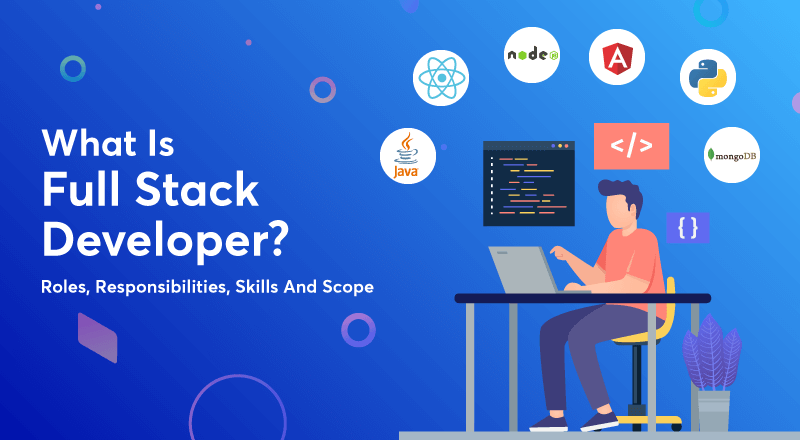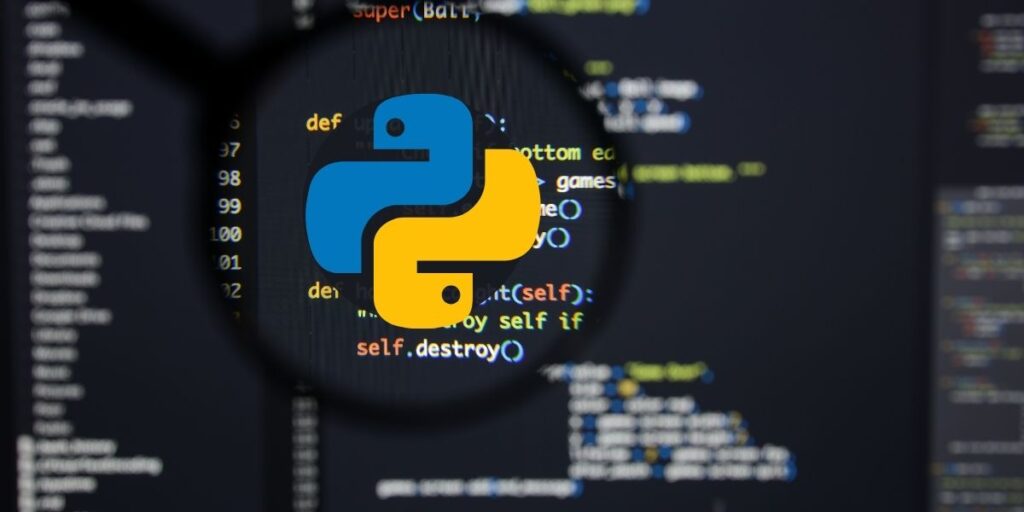As technology continues to advance at a rapid pace, the demand for skilled developers has never been higher. One type of developer that has gained significant popularity in recent years is the full stack developer. This versatile role requires proficiency in both front-end and back-end development, making them valuable assets to any tech team.
In this article, we will delve into the key responsibilities of a full stack developer, the essential skills they possess, and the tools they use to create dynamic and engaging applications. Whether you are considering a career as a full stack developer or looking to hire one for your team, this article will provide valuable insights into this multifaceted role.

Key Responsibilities of a Full Stack Developer
A full stack developer is responsible for designing, developing, and maintaining web applications from start to finish. They are proficient in both front-end and back-end development, allowing them to handle all aspects of the application development process. Here are some of the key responsibilities of a full stack developer:
Front-End Development
Front-end development involves creating the user-facing side of an application. It focuses on the visual and interactive elements that users see and interact with. A full stack developer must be well-versed in front-end languages and frameworks to create efficient and user-friendly interfaces. Some of the essential front-end skills for a full stack developer include:
- HTML: This markup language is the backbone of every web page. It is used to structure and organize content on a website.
- CSS: Cascading Style Sheets (CSS) is used to style and give visual appeal to HTML markup, enhancing the aesthetics and user experience.
- Bootstrap: This popular CSS framework is known for its responsive design, making it ideal for creating mobile-first websites.
- W3.CSS: Another modern CSS framework, W3.CSS is known for its simplicity, ease of use, and built-in responsiveness.
- JavaScript: This programming language is used to create interactive web pages, enabling dynamic and engaging user experiences.
- HTML DOM (Document Object Model): This API allows access to and manipulation of HTML elements and their properties, methods, and events during runtime.
Back-End Development
Back-end development involves creating the server-side of an application. It focuses on the behind-the-scenes functionality that powers the front-end. A full stack developer must be proficient in back-end programming languages and tools to design and maintain databases, servers, and APIs. Some of the essential back-end skills for a full stack developer include:
- Python: This versatile programming language is widely used for server-side development, making it ideal for applications such as machine learning, data analysis, and back-end web development.
- Tools like Backbone: Backbone is a lightweight MVC (Model-View-Controller) framework for JavaScript, making it easier to organize and structure complex web applications.

Essential Skills of a Full Stack Developer
Apart from technical skills, a full stack developer must possess certain soft skills to excel in their role. Here are some of the essential skills that make a great full stack developer:
Adaptability and Versatility
A full stack developer must be adaptable and versatile, as they are required to work on both front-end and back-end tasks. They must be able to switch between different programming languages, frameworks, and tools seamlessly. This flexibility allows them to handle any project thrown their way and makes them valuable assets to any tech team.
Problem-Solving and Troubleshooting
As with any development role, a full stack developer must have excellent problem-solving and troubleshooting skills. They must be able to identify and resolve issues quickly and efficiently, whether it’s a bug in the code or a server error. This skill is crucial in ensuring the smooth operation of applications and maintaining customer satisfaction.
Time Management and Organization
A full stack developer is responsible for handling various tasks simultaneously, from designing user interfaces to managing databases. As such, they must possess excellent time management and organizational skills to ensure that all tasks are completed efficiently and on time. This skill is essential in meeting project deadlines and delivering high-quality work.
Tools Used by Full Stack Developers
To create dynamic and engaging applications, a full stack developer relies on a variety of tools and technologies. Here are some of the essential tools used by full stack developers:
Integrated Development Environments (IDEs)
An IDE is a software application that provides comprehensive tools for coding, debugging, and testing. It allows developers to write code more efficiently and effectively, making it an essential tool for full stack developers. Some popular IDEs used by full stack developers include Visual Studio Code, Atom, and Sublime Text.
Version Control Systems (VCS)
Version control systems are used to track changes made to code over time. They allow developers to collaborate on projects, revert to previous versions of code, and manage conflicts. Git is the most widely used VCS, and GitHub is a popular platform for hosting and sharing code repositories.
Package Managers
Package managers are used to install, update, and manage dependencies for a project. They save developers time and effort by automating the process of downloading and installing libraries and frameworks. Some popular package managers used by full stack developers include npm for JavaScript and pip for Python.
Conclusion
The role of a full stack developer is crucial in the development of modern web applications. Their proficiency in both front-end and back-end development makes them valuable assets to any tech team. From creating user-friendly interfaces to designing robust databases and servers, a full stack developer is responsible for all aspects of the application development process.
In this article, we have explored the key responsibilities of a full stack developer, the essential skills they possess, and the tools they use to create dynamic and engaging applications. Whether you are considering a career as a full stack developer or looking to hire one for your team, this article has provided valuable insights into this multifaceted role. With technology continuously evolving, the demand for skilled full stack developers is only expected to increase in the future.



